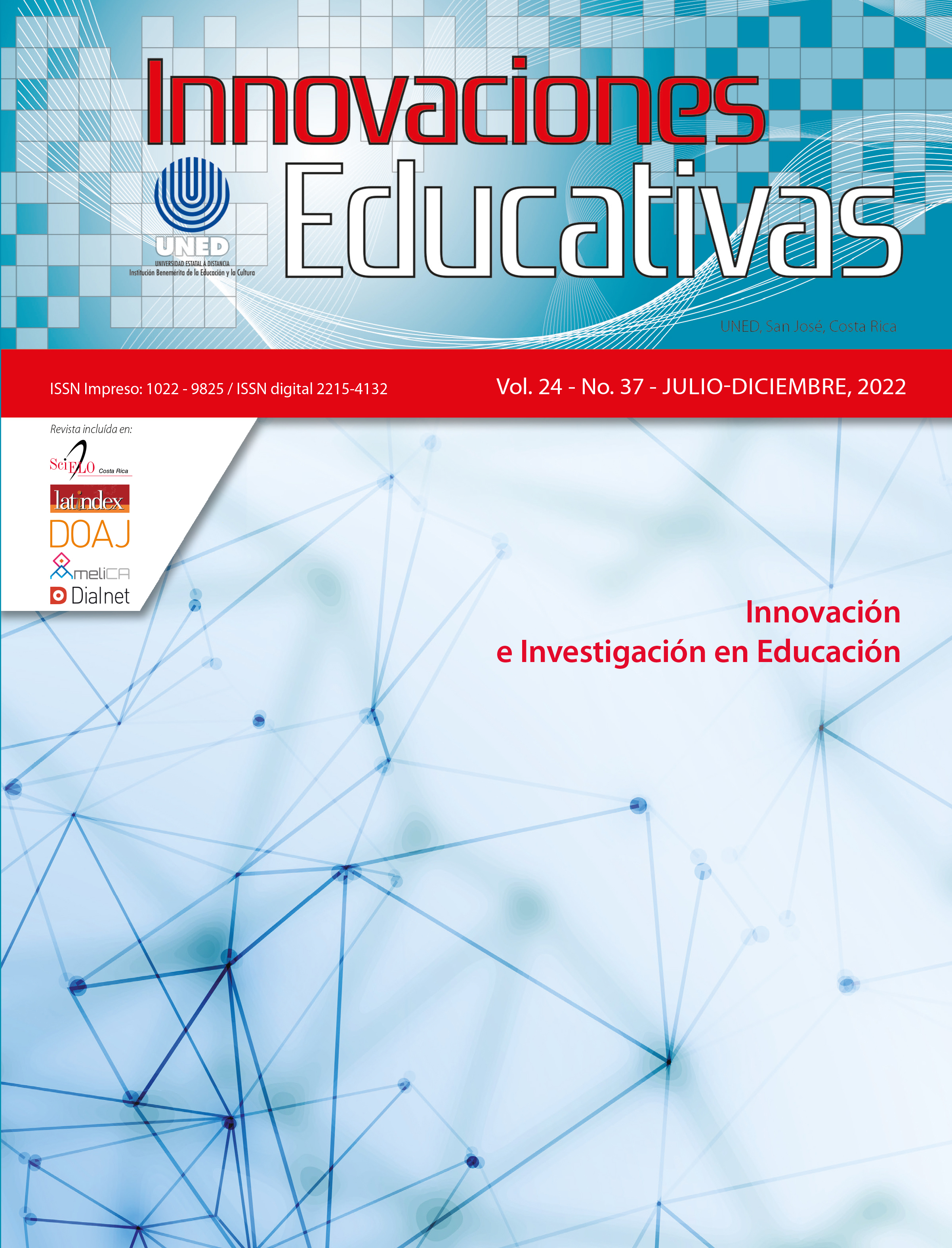Development of life skills in university students through a program of elective courses: an analysis of the coincidence of perceptions
DOI:
https://doi.org/10.22458/ie.v24i37.3955Keywords:
life skills, higher education, active learning, socioemotional learning, interdisciplinary approachAbstract
Life skills are indispensable for a student’s future performance, so it is essential to evaluate the degree to which they are developed through the academic curriculum. The present study explores how much the perceptions of teachers, monitors, and students coincide about the life skills they develop in four elective courses at Universidad del Rosario - Colombia. Perceptions were obtained through three different collection methods: focus groups, participatory observation, and a questionnaire. The results showed a percentage of agreement among the participants on which skills are developed of 34.8% in the Oenology elective class, 55% in the Creative Writing Workshop, 80% in an elective class focused on stress management, and 94% in the Map of Senses elective class (general agreement 66%). In the end, it is discussed that, while it is true that the elective classes’ focus is to achieve not only an education for the academic world but also for real life. Therefore, it is necessary to adjust in a prior and measurable way which are the skills to be developed in each subject and in what way, in order to optimize learning outcomes and have an impact concomitant to the courses’ objectives.
The results showed a 66% agreement among the participants leading to the discussion that, although it is true that the electives are adequately focusing on education for life and not only for academia, it is necessary to standardize in advance and measure what skills are developed in each subject and in what way, to optimize learning results and have an impact according to the objectives of the subjects.
References
Acosta, P., Muller, N., & Sarzosa, M. A. (2015). Beyond qualifications: returns to cognitive and socio-emotional skills in Colombia. World Bank Policy Research Working Paper, (7430).
Choque-Larrauri, R., & Chirinos-Cáceres, J. L. (2009). Eficacia del Programa de habilidades para la vida en adolescentes escolares de Huancavelica, Perú. Revista de Salud pública, 11, 169-181.
García-de la Vega, L. B., Reyes-Abreu, D., & Almaguer-Zayas, A. (2013). Asignaturas electivas para la ampliación de fronteras de los currículos. VARONA, Revista Científico-Metodológica, (56), 48-51.
Elsheshtawy, E., Taha, H., Almazroui, S., Joshi, K., & Almazroui, A. (2018). Personality traits as predictors of stress and depression among medical students: A cross-sectional study. The Editorial Assistants–Jordan, 28(1), 123-130. https:doi-10.12816/0051277
Lail, R. A., Aziz, N., Afzal, H. S., Sabir, S. H., Waseem, T., Qamar, I., & Bhatti, N. (2021). Prevalence of depression, anxiety and stress (By DASS 42 Scoring System) among the undergraduate students of Sahiwal Medical College. The Professional Medical Journal, 28(03), 407-414. https://doi.org/10.29309/TPMJ/2021.28.03.5437
Leech, N. L., y Onwuegbuzie, A. J. (2008). Qualitative data analysis: A compendium of techniques and a framework for selection for school psychology research and beyond. School psychology quarterly, 23(4), 587. https://doi.org/10.1037/1045-3830.23.4.587
Márquez, M., De Cleves, N., & Burgos, B. (2011). Incidencia de la inteligencia emocional en el proceso de aprendizaje. Nova, 9(15). https://doi.org/10.22490/24629448.492
Medrano, S. E., & Pacheco, J. P. (2021). Habilidades para la vida en el currículo y práctica de Educación Inicial y Parvularia. Conocimiento Educativo, 8, 107-125. https://doi.org/10.5377/ce.v8i1.12594
Merçon, J. (2021). Comunidades de aprendizaje transdisciplinarias: cuidando lo común. DiDac, (78 JUL-DIC), 72-79. https://doi.org/10.48102/didac.2021..78_JUL-DIC.75
Ortigoza, C., Fernandez, E., & Bonachea, O. (2015). Hacia un currículo flexible: Salidas intermedias y cursos optativos. Didasc@ lia: Didáctica y Educación, 6(1), 305-310.
Vera, F.M. (2016). Transformación curricular: El caso de una universidad privada chilena. Revista iberoamericana de educación.
Vera, F.M. (2017). Infusión de habilidades blandas en el currículo de la educación superior: Clave para el desarrollo de capital humano avanzado. Revista Akadèmeia, 15(1), 53-73.
Downloads
Published
How to Cite
Issue
Section
License
Copyright (c) 2022 Innovaciones Educativas

This work is licensed under a Creative Commons Attribution-NonCommercial-NoDerivatives 4.0 International License.

